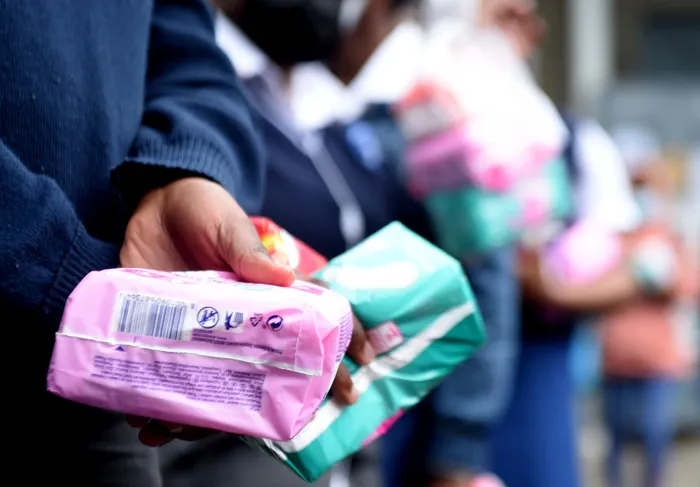Addressing period poverty in South Africa’s education system

Empowering young girls: South Africa’s initiative to combat period poverty in schools.
Image: Itumeleng English/Independent Newspapers
The challenge of period poverty remains a barrier for many girl learners in South Africa, restricting their access to quality education and undermining their dignity. However, the Department of Basic Education (DBE) has taken decisive steps to address this pressing issue, committing to a comprehensive approach that spans government and society.
This was in response to a parliamentary question posed to Minister Siviwe Gwarube by the EFF’s Naledi Chirwa-Mpungose, which sought to ascertain the Minister’s accountability for the basic education sector’s approach to period poverty. Specifically, Chirwa-Mpungose asked what interventions the department had spearheaded to address period poverty and what their resulting impact was.
Gwarube said the DBE recognises period poverty as a serious barrier to access, retention and participation in schooling for many girl learners. She has taken responsibility for ensuring that this issue is addressed through a whole-of-government and whole-of-society approach, in line with the national Menstrual Health and Sanitary Dignity Framework coordinated by the Department of Women, Youth and Persons with Disabilities (DWYPD).
She explained that the DBE hosted a National Indaba on Menstrual Health and Sanitary Dignity in May 2025. This event was a direct outcome of prior engagements with the portfolio committees on Basic Education, Higher Education and Training, and Women, Youth and Persons with Disabilities. Supported by these three portfolio committees, the indaba saw participation from 11 other government departments. Its primary goals were to strengthen coordination among departments and to mobilise resources to effectively tackle menstrual health management and period poverty, specifically within the basic education sector.
Gwarube said the department has implemented various measures, with a dual focus on education and ensuring access to menstrual health products. These interventions include:
- In-class menstrual health and sanitary dignity education: Provision of age-appropriate, scientific and culturally sensitive information to prepubescent and adolescent learners through the Life Skills and Life Orientation curricula, as part of the Comprehensive Sexuality Education framework;
- Distribution of menstrual products: In supporting school attendance and learner dignity, working with the DWYPD and provincial partners, the department ensures the distribution of menstrual products to indigent learners in quintile 1-3 public schools; and
- Digital communication and advocacy campaign: Launch of a continuous digital and social media campaign focused on promoting menstrual health and sanitary dignity, challenging myths and stigma surrounding menstruation and encouraging constructive male involvement.
Gwarube also said these combined interventions have significantly supported menstrual health education and improved learner wellbeing. This is indicated by the following:
- Learners have benefited from the in-class education component, which has improved their understanding of menstrual health. This intervention has also fostered a positive culture of dignity, openness, and body literacy.
- Equitable participation in learning and the distribution of menstrual products has reduced absenteeism among girls from disadvantaged backgrounds; and
- Social mobilisation and advocacy have been strengthened by the digital campaign, helping to normalise menstruation as a natural biological process, while involving boys and young men as active allies in promoting gender equality and respect in schools.
“The department remains committed to working with its partners across government and the private sector to ensure that no learner misses school due to a lack of access to menstrual products,” Gwarube said.
She added that addressing period poverty is an essential part of promoting gender equity, learner wellbeing, and the right to basic education, in alignment with Sustainable Development Goal 4 (Quality Education) and Sustainable Development Goal 5 (Gender Equality).
thobeka.ngema@inl.co.za